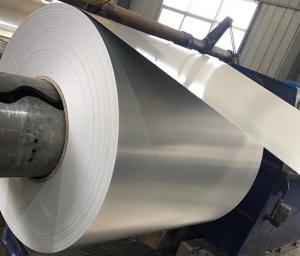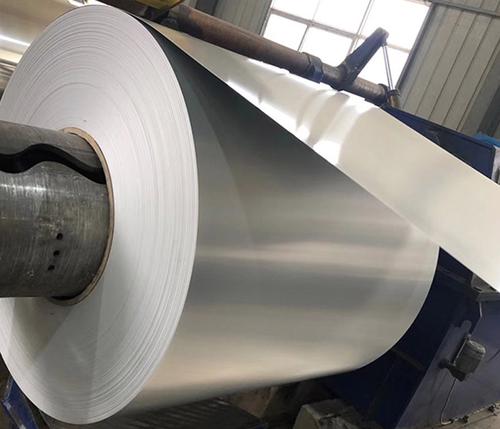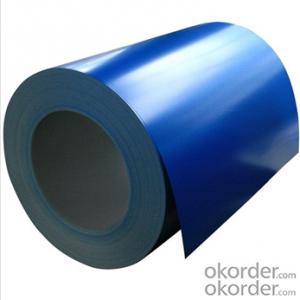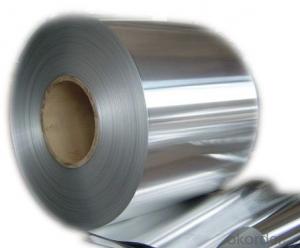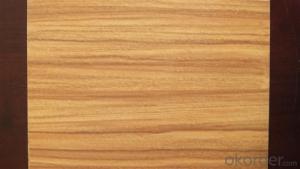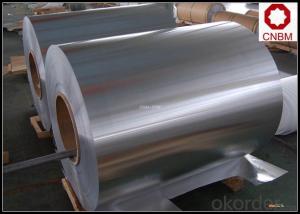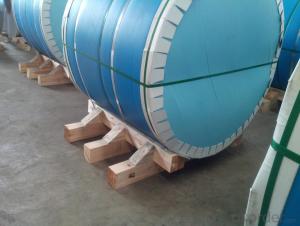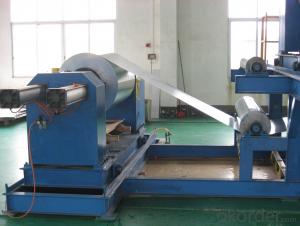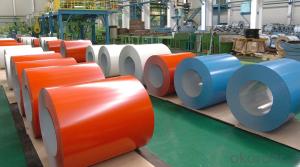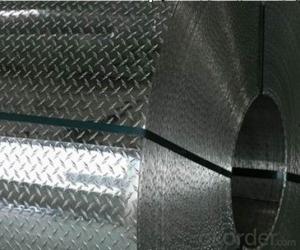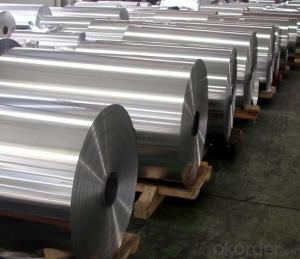Cold rolled aluminum coil 0.15-4.0mm 1060 1100 3003 3105 5052 Aluminum alloy coil
- Loading Port:
- Qingdao
- Payment Terms:
- TT OR LC
- Min Order Qty:
- 1 m.t.
- Supply Capability:
- 200 m.t./month
OKorder Service Pledge
OKorder Financial Service
You Might Also Like
Specification
Cold rolled aluminum coil usually refers to the cold rolled aluminum coil processed by the cast rolling material through the cold rolling process, which is usually called cast rolled aluminum coil. Cold rolling is a common metal processing process. It is to reduce the thickness of the material and improve its surface quality and mechanical properties by further processing at room temperature or slightly below room temperature after the metal is heated (usually hot rolled). As for the aluminum coil casting process, it may be relatively simple. Aluminum ingot---aluminum liquid---static furnace---cast rolled coil, which is a conventional processing process for raw materials.
Cold-rolled aluminum coils are more inclined to non-heat treatment processes. For example, our common 1060 aluminum coils, 3003 aluminum plates, 3105 aluminum coils, 5052 aluminum plates, 1100 aluminum plates, etc. are all cold-rolled aluminum coils, which are suitable for simple stamping, but not suitable for large-scale finished product stamping. Therefore, the main application areas are currently mainly concentrated in building exterior walls, signs and signs, etc.
Aluminum coil specifications:
| Alloy | 1060, 1100, 3003, 3004, 3105, 5052, 8011, etc |
| Temperature | H32 H34 H36 H42 H111 H112 H116, etc |
| Surface | Mill, Bright, Polished, Hairline, Embossed, Etching |
| Thickness | 0.15-4.0mm |
| Width | 20-2650mm |
| Length | C |
| Core Diameter | 505/508 |
| Sample | Free sample |
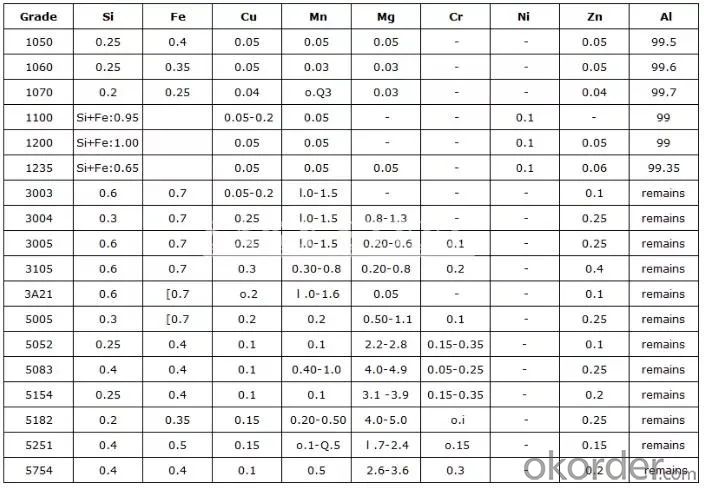
Features of cold-rolled aluminum coil:
1. High surface finish: The cold rolling process can improve the surface quality of the aluminum coil, making it smooth and shiny.
2. High thickness accuracy: The thickness of the cold-rolled aluminum coil can be very precise, suitable for applications with strict thickness requirements.
3. Excellent mechanical properties: The cold rolling process can improve the strength and hardness of aluminum, especially in applications that require high strength.
4. Good processability: Due to its good strength and ductility, cold-rolled aluminum coils are easy to process in the future, such as shearing, stamping, stretching, etc.
Application areas:
Building materials: used for building materials such as roofs, wall panels, curtain walls, etc.
Automotive industry: body panels, auto parts, etc.
Electronic products: shells of mobile phones, laptops, etc.
Home appliance industry: shell materials for home appliances such as refrigerators and washing machines.
Packaging industry: such as beverage cans, food packaging, etc.
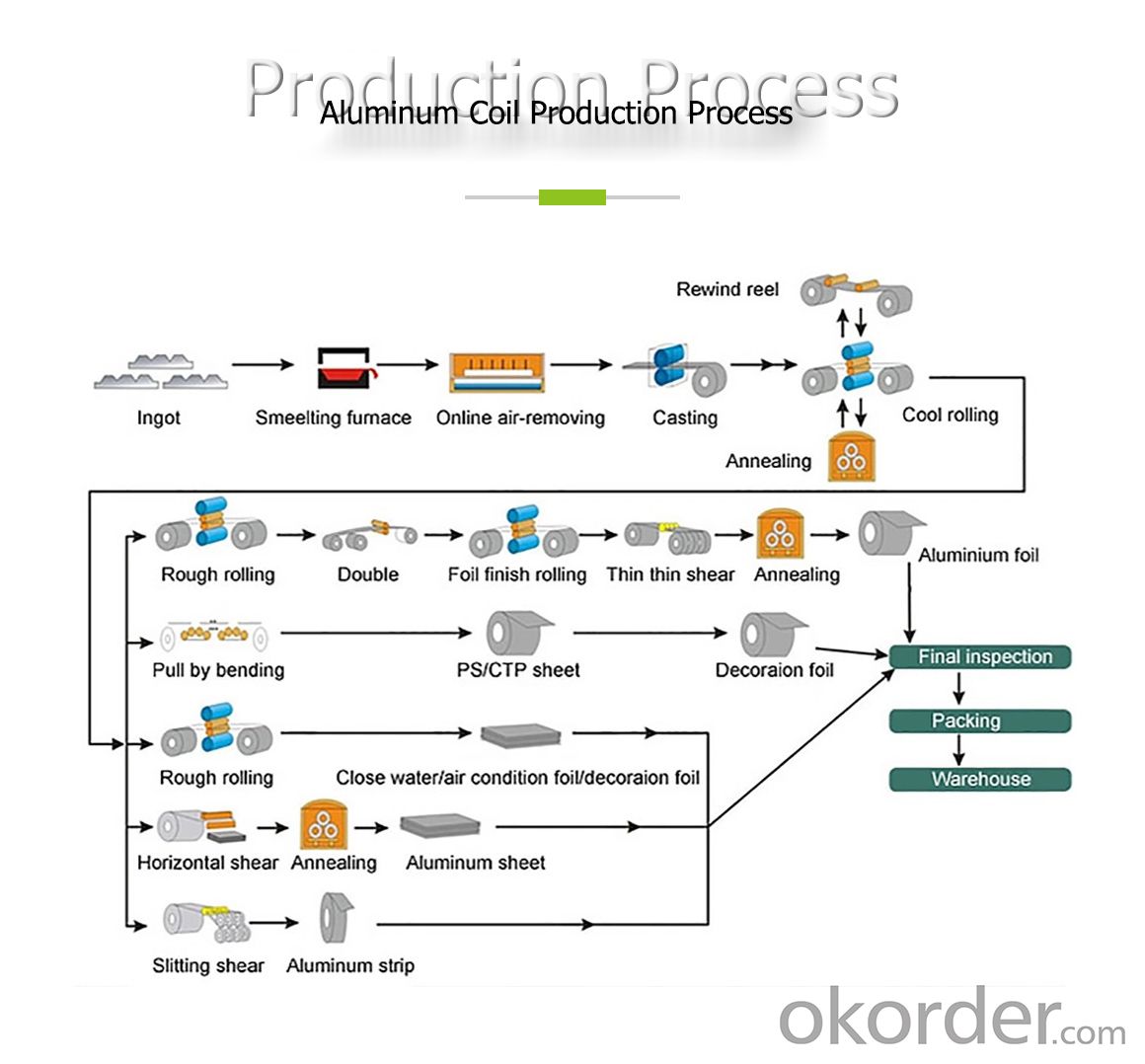
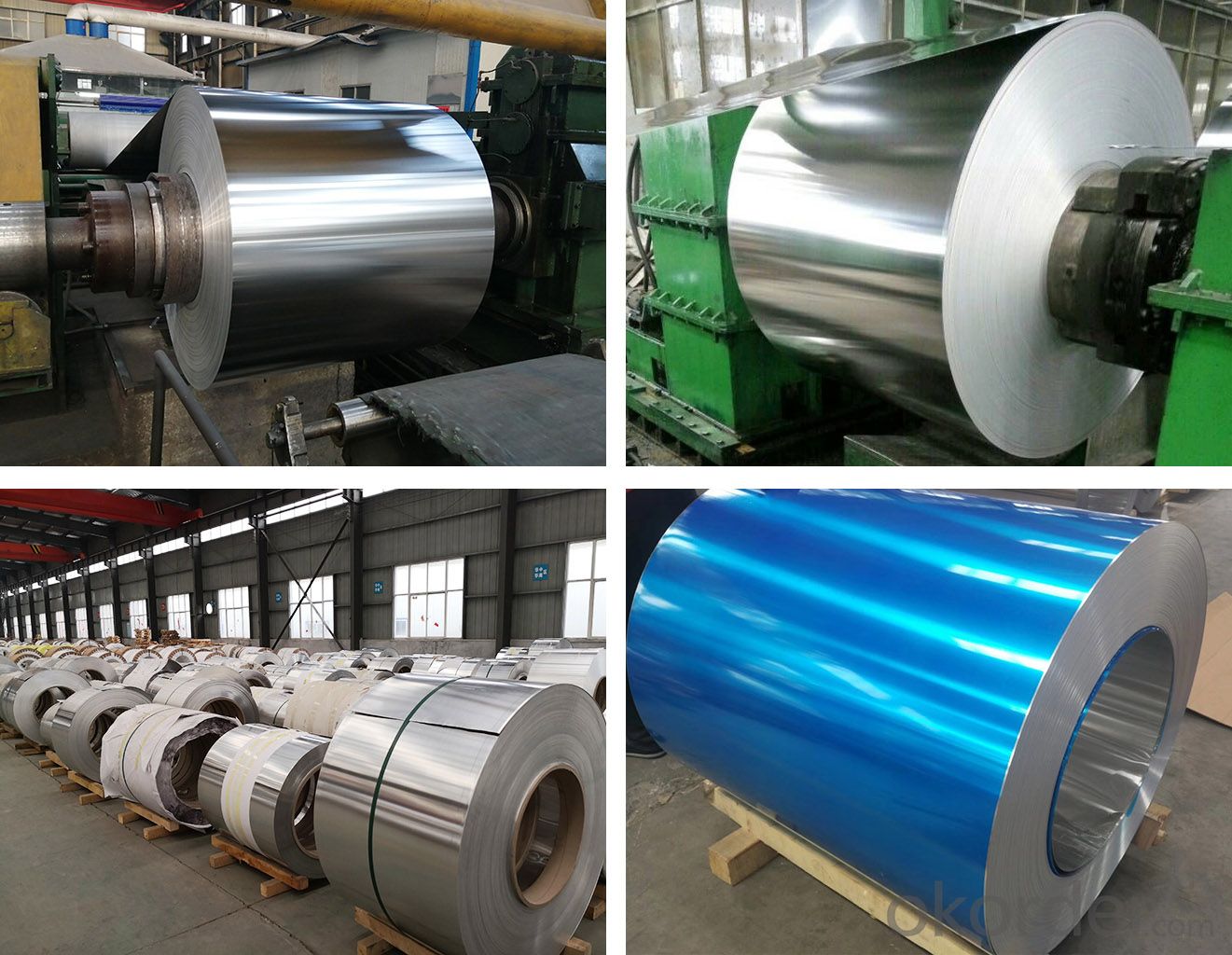
Packaging:
Export packaging of aluminum coils: Export packaging usually adopts the fumigation well frame method, which is fixed with steel belts on the outside. The aluminum coil has a double-layer moisture-proof rain cloth on the outside, and the inside is protected from moisture-proof agents. It adopts sealed packaging, which is suitable for sea transportation.
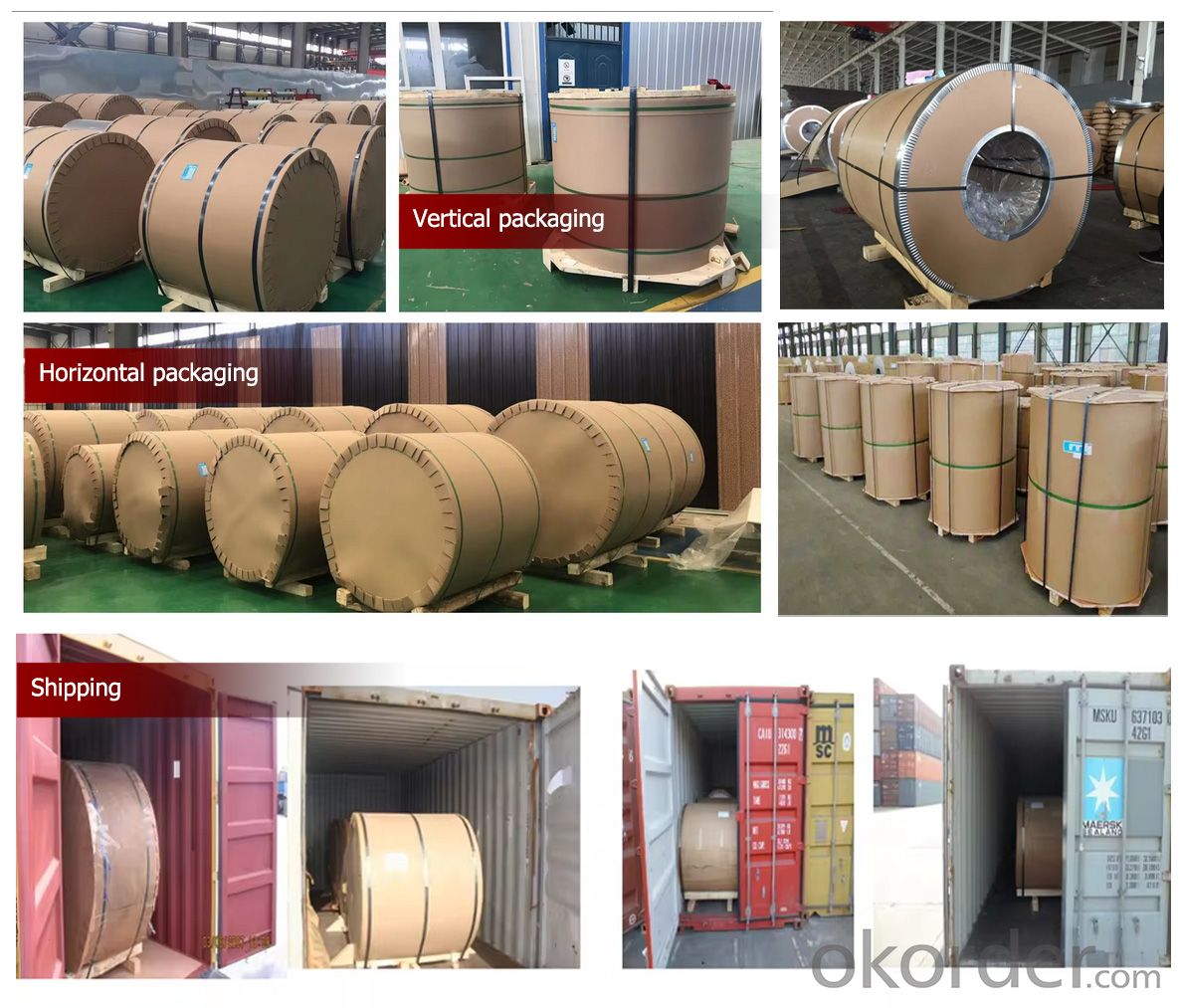
- Q: How are aluminum coils protected against bending and warping during storage?
- Aluminum coils are protected against bending and warping during storage through proper handling and packaging techniques. They are typically stored horizontally on specially designed racks or pallets to evenly distribute the weight and minimize stress on the coils. Additionally, they are often wrapped in protective materials such as stretch films or plastic sheets to provide an extra layer of cushioning and prevent any external forces from causing deformation.
- Q: How are aluminum coils used in the production of transportation vehicles?
- Aluminum coils play a crucial role in the production of transportation vehicles, especially automobiles and aircraft. These coils are typically made from high-quality aluminum alloys due to their lightweight nature, excellent strength-to-weight ratio, and corrosion resistance characteristics. In automobile manufacturing, aluminum coils are primarily used in the construction of vehicle bodies, including the frame, doors, hoods, and trunk lids. The lightweight nature of aluminum allows for reduced fuel consumption and improved overall energy efficiency, making it a preferred choice for vehicle manufacturers aiming to meet stringent environmental regulations and enhance fuel economy. Aluminum coils are also utilized in the production of aircraft, where weight reduction is of utmost importance to ensure optimum flight performance. By incorporating aluminum coils in key components such as fuselages, wings, and engine parts, aircraft manufacturers can achieve significant weight savings while maintaining structural integrity and durability. The use of aluminum coils in transportation vehicles also contributes to improved safety standards. Aluminum's exceptional crash energy absorption capabilities make it an ideal material for manufacturing impact-absorbing structures, such as bumpers and crash boxes in automobiles, providing enhanced protection to passengers during collisions. Furthermore, aluminum coils offer excellent heat dissipation properties, reducing the risk of overheating in engines and other critical vehicle systems. This thermal management capability is particularly beneficial in high-performance vehicles, where efficient cooling is paramount to maintain optimal operating conditions. In summary, aluminum coils are extensively used in the production of transportation vehicles to leverage their lightweight, strong, corrosion-resistant, and thermally conductive properties. By incorporating aluminum coils in vehicle manufacturing, automobile and aircraft industries can achieve weight reduction, improved fuel efficiency, enhanced safety, and superior performance, thereby meeting evolving market demands and sustainability goals.
- Q: Can aluminum coils be used in automotive body panels?
- Yes, aluminum coils can be used in automotive body panels. Aluminum is a lightweight and corrosion-resistant material, making it an ideal choice for automotive applications. The use of aluminum coils in body panels offers several advantages, including improved fuel efficiency due to the reduced weight of the vehicle, better handling and maneuverability, and enhanced durability. Additionally, aluminum is highly recyclable, making it an environmentally friendly option for automotive manufacturing. Many automakers have already started incorporating aluminum coils in their vehicles, and this trend is expected to continue as the industry strives for lighter and more sustainable vehicles.
- Q: Are aluminum coils suitable for food storage containers?
- Yes, aluminum coils are suitable for food storage containers. Aluminum is a non-toxic and non-reactive metal that is safe for storing food. It is lightweight, durable, and has excellent temperature retention properties, making it a popular choice for food storage containers.
- Q: Are aluminum coils suitable for interior decorative applications?
- Indeed, interior decorative applications are well-suited for aluminum coils. This material, being lightweight and flexible, lends itself to effortless shaping into diverse forms, thus making it perfect for decorative purposes. Moreover, aluminum offers a vast array of finishes, colors, and patterns, granting limitless design options. In addition, its remarkable durability and corrosion resistance guarantee its enduring aesthetic appeal. Furthermore, aluminum is an environmentally friendly choice, as it can be recycled indefinitely, making it a sustainable material for interior decorations. All in all, aluminum coils offer a cost-effective and visually appealing alternative for interior decorative applications.
- Q: The user is asking if it's possible to create furniture using aluminum coils.
- <p>Yes, you can use aluminum coils to make your own furniture. Aluminum is a versatile material known for its strength, durability, and lightweight properties, making it suitable for furniture construction. You can bend and shape aluminum coils to create unique designs for chairs, tables, or shelving. However, it's essential to have the right tools and skills for cutting, bending, and joining the coils. Ensure you follow safety precautions when working with metal, and consider the structural integrity and weight distribution of your design to ensure the furniture's stability and longevity.</p>
- Q: Is it possible to create a flowerpot using an aluminum coil?
- <p>Yes, you can use an aluminum coil to make a flowerpot. Aluminum is lightweight, durable, and can be easily shaped, making it a suitable material for crafting flowerpots. To create a flowerpot, you would need to cut the coil to the desired size, shape it into a pot form, and possibly add drainage holes. Ensure the aluminum is cleaned and treated to prevent any potential harm to the plants due to chemical reactions with the soil.</p>
- Q: Can aluminum coils be used for gutter systems?
- Yes, aluminum coils can be used for gutter systems. Aluminum is a popular material for gutters due to its lightweight nature, durability, and resistance to rust and corrosion. Aluminum coils are often used to form seamless gutters, which offer advantages such as fewer leaks and a more aesthetically pleasing appearance. Additionally, aluminum gutters are easy to maintain and can be painted to match the exterior of a building. Overall, aluminum coils are a suitable and commonly used choice for gutter systems.
- Q: Are aluminum coils suitable for decorative purposes?
- Aluminum coils are indeed appropriate for decorative purposes. Aluminum possesses versatility as a material, enabling it to be effortlessly shaped into different sizes and forms, which renders it suitable for decorative applications. Its lightweight characteristic, endurance, and resistance to corrosion make it an optimal selection for both interior and exterior decorative projects. Moreover, aluminum can undergo various finishes and coatings, such as powder coating or anodizing, to enhance its visual allure. These coatings present a wide array of colors, textures, and patterns, thereby facilitating boundless design possibilities. Furthermore, aluminum coils can be effortlessly manipulated into intricate designs, qualifying them for decorative elements like trims, accents, panels, or even sculptures. In summary, aluminum coils provide a cost-effective, long-lasting, and visually pleasing alternative for diverse decorative purposes.
- Q: What is the typical conductivity of aluminum coils?
- The typical conductivity of aluminum coils is high, ranging from approximately 35 to 40 million Siemens per meter (MS/m).
Send your message to us
Cold rolled aluminum coil 0.15-4.0mm 1060 1100 3003 3105 5052 Aluminum alloy coil
- Loading Port:
- Qingdao
- Payment Terms:
- TT OR LC
- Min Order Qty:
- 1 m.t.
- Supply Capability:
- 200 m.t./month
OKorder Service Pledge
OKorder Financial Service
Similar products
Hot products
Hot Searches
Related keywords
